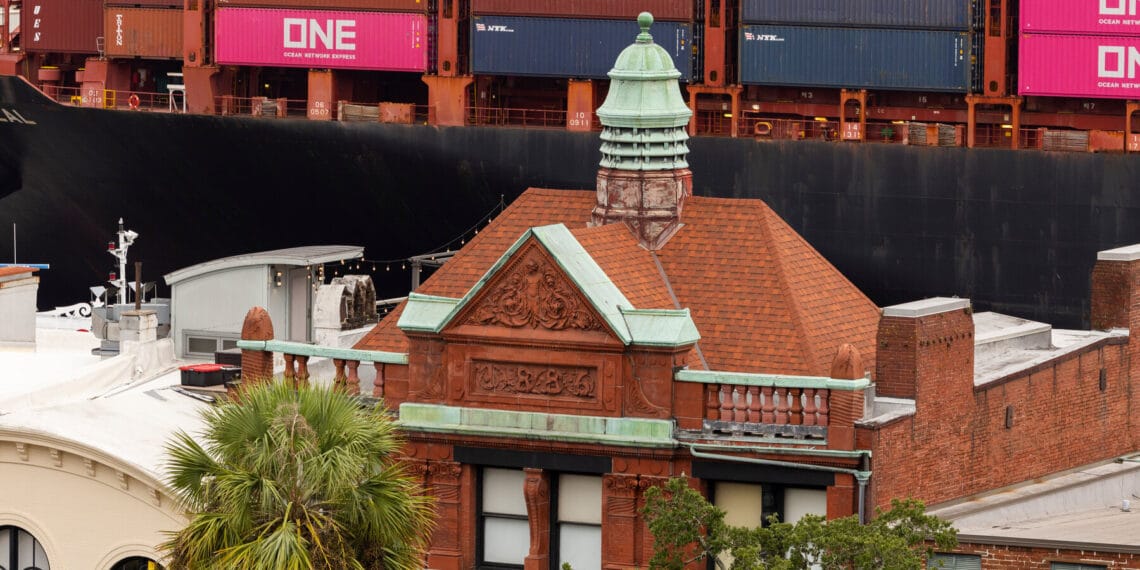The Gist
The city in Georgia, known for its charming beauty, is a popular tourist place. It attracts many visitors with its scenic views and vibrant culture. However, it is not just a tourist spot; it is also very important for business as it ranks as the second-largest ocean cargo hub on the East Coast of the United States. This means a lot of goods arrive and leave from this port to different places.
Recently, there was a dock strike that could have caused problems for shipping and trade. Fortunately, the strike ended quickly. This news is very comforting for businesses and those who rely on the smooth transport of goods. The quick resolution of the issue helps maintain the efficiency of both tourism and trade in the region.
The Good
- Economic Stability: The end of the dock strike ensures that businesses can continue operating smoothly. This keeps the economy strong in the region.
- Tourism Boost: Tourists can now visit without the worries of disruptions at the port. This will help local businesses that depend on tourism.
- Job Security: With the efficient running of the shipping port, many workers can keep their jobs. This is good for families and the community.
- Stronger Supply Chains: With the dock back in action, shipments of goods, food, and products can flow freely. This helps stores to remain stocked and leads to better prices for consumers.
- Positive Image: The quick resolution of the strike reflects positively on the city’s ability to manage conflicts. This can attract more businesses and tourists in the future.
The Bad
- Underlying Tensions: While the strike ended, it may not mean that all problems are solved. There might still be issues between workers and management that could lead to future disruptions.
- Short-Term Solutions: The quick end of the strike might suggest that not all workers’ concerns were properly addressed. This can lead to more dissatisfaction among the staff.
- Dependence on Cargo Operations: The city’s heavy reliance on port operations means that any future strike or disruption could have an even bigger impact on the economy.
- Environmental Concerns: Increased shipping activities can lead to more pollution and environmental issues, especially in coastal areas.
- Risk of Overcrowding: As tourism increases, the city may face issues with overcrowding. This can take away from its charm and make it less enjoyable for visitors.
The Take
Georgia is home to a beautiful city that serves as both a picturesque tourist destination and a crucial ocean cargo hub, ranking second on the East Coast. Tourists flock to this city for its charming views, vibrant culture, and inviting atmosphere. Alongside this, the city plays a significant role in trade, as a significant volume of goods year-round moves through its busy docks. This dual identity is part of what makes the city unique.
However, recent events concerning dock workers have put this balance to the test. A dock strike had raised concerns about the logistics of goods shipment, risking delays that could disrupt both the tourism and cargo sectors. The strike came as a surprise to many, leading to worries about job security for workers at the docks and the businesses that thrive on transport and tourism.
Fortunately, the strike’s resolution came swiftly, providing relief not just for businesses but also for tourists eager to explore what the city offers. The quick negotiation meant that shipments could resume without much delay, which ensures that local businesses would not miss their opportunities, whether that be from selling goods or providing services to visiting tourists. This outcome is beneficial, as it helps keep the local economy healthy and maintains job security for many residents who rely on either the cargo operations or tourism to make a living.
Nevertheless, while this resolution brings a sigh of relief, it does not eliminate the underlying issues that led to the strike in the first place. Workers might feel that their grievances were not fully heard, potentially leading to more unrest in the future. A trend of quick fixes rather than addressing the root causes of disputes can also set a worrying precedent. If the workers feel underappreciated or overworked and hesitant to express their concerns continuing in the future could suddenly create chaos if they once again resort to strikes.
The city’s reliance on the cargo industry is another concern. The heavy focus on the port means that any future strikes or logistic issues could result in significant economic consequences. Additionally, as shipping activity increases, there could be environmental concerns. Increased cargo operations often lead to higher levels of pollution, raising questions about the balance between economic growth and environmental stewardship.
Furthermore, as more tourists are drawn to the vibrant city, potential overcrowding could detract from the peaceful atmosphere that draws visitors in the first place. The charm of the city could be compromised if too many people visit, making the experience less enjoyable for everyone.
In conclusion, while the immediate situation brings about many positives by resolving the dock strike quickly, the underlying issues and future risks cannot be overlooked. Continued attention is needed to ensure that both workers and businesses feel secure, and that the charm of the city can be maintained amidst growth. The city holds much promise for future visitors and economic prosperity, but balance is the key to its success.




